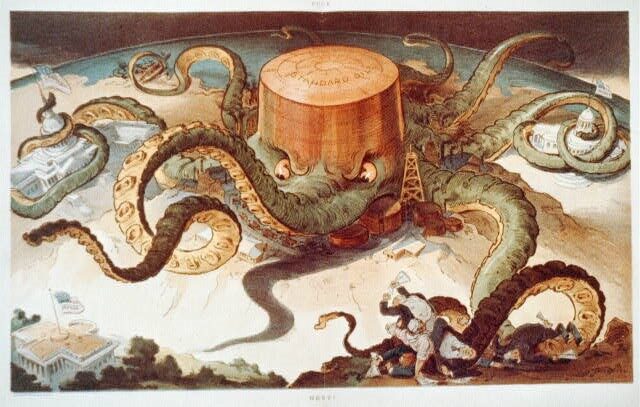Lessons From The Swamp
November 1, 2019
Having lived in the DC area before, I was familiar with the common expression “draining the swamp.” Although not necessarily rooted in the factual ecological history of the area, which according to Carl Abbott (2017) in his piece Draining the swamp: A guide for outsiders and career politicians, more closely resembled a hilly landscape with beautiful vistas, this expression is customarily used to describe lobbyists and corrupt politicians involved in the federal political process. When I searched the address of Clean Water Action/Clean Water Fund’s office where I would be working, I noticed it was located on I street, one block away from the infamous K Street, usually invoked to talk about corporate lobbyists buying dishonest politicians. But my assignment, as I would discover, represented the better side of the lobbying business, the watchdogs that inform our representatives and advocate for protecting our water and, in turn, our public health.
My understanding of what constitutes lobbying was limited when I arrived at my placement, but the time spent this summer provided me with an insider’s understanding of the workings of government. After relocating from Ann Arbor, Michigan to Silver Spring, Maryland, I was warmly welcomed at my placement by a small team in the national office which introduced me to the topic I would be researching. I was to focus on the oil and gas industry and their wastewater discharges to waters of the U.S. No time to waste; going straight into the belly of the beast.
My research proved as intoxicatingly interesting as it was disheartening. Indeed, I was reminded of the well-known cartoon by Udo Keppler, depicting the oil industry as an all-encompassing octopus firmly wrapping its tentacles around our political institutions. As I studied the Clean Water Act regulations that apply to oil and gas and searched for permits to discharge wastewater around the nation, I discovered the strength that the industry experts in our political process.
One of the first reports I read was The Chilling Effect of Oil and Gas Money in our Democracy by John Noel (2016), the former National Oil and Gas Programs Director at Clean Water Action. This report outlines the staggering amount of resources the oil and gas industry invests in influencing the political process and altering current and proposed legislation. Later during my own research, I had a chance to read industry letters to the Environmental Protection Agency outlining detailed requests from industry representatives. The importance of the report is not just the fact that the oil and gas industry, like other industries, organizations, and citizens, lobby the government; but how much money and resources they invest.
As I would later realize, lobbying is not necessarily a negative process. As I witnessed during some visits to the Hill, the fact that there is access to government is a healthy part of our democracy. Environmental organizations, for example, are able to meet with government officials and educate them about complex environmental issues that would otherwise take years to understand. These same organizations can give voice to citizens who don’t have the time or the expertise to engage in the process directly. I also learned that there is an opportunity for environmental justice organizations to utilize these processes to advance causes they are advocating for. But it is the unequal access to resources that places these organizations and citizens at a disadvantage and makes this otherwise democratic function unbalanced.
My biggest lesson this summer was about democracy and its inexorable link to environmental issues and issues of environmental justice. This lesson culminated with Robert Reich’s talk at the Environmental Grantmakers Association’s yearly retreat, which I attended at the end of my fellowship. His talk cemented what I had already learned, that addressing these inequalities is key to be successful in transforming our society. Democracy is at stake, as is clean water and the health of the public. I spent my summer in the swamp, learning about its ecosystem, and the inherent flaws that govern it. The invaluable lessons I gained will inform how I advocate for systemic change for years to come.
Works Cited
Abbott, Carl (2017). Draining the swamp: A guide for outsiders and career politicians. The Conversation. Retrieved from https://theconversation.com/draining-the-swamp-a-guide-for-outsiders-and-career-politicians-73422?xid=PS_smithsonian
Keppler, Udo (1904). Standard Oil Octopus. Library of Congress. https://www.loc.gov/pictures/item/2001695241/
Nöel, John (2016). The Chilling Effect of Oil and Gas Money in our Democracy. Clean Water Action. Retrieved from https://www.cleanwateraction.org/publications/chilling-effect-oil-and-gas-money-our-democracy
About Delia Mayor, MS

